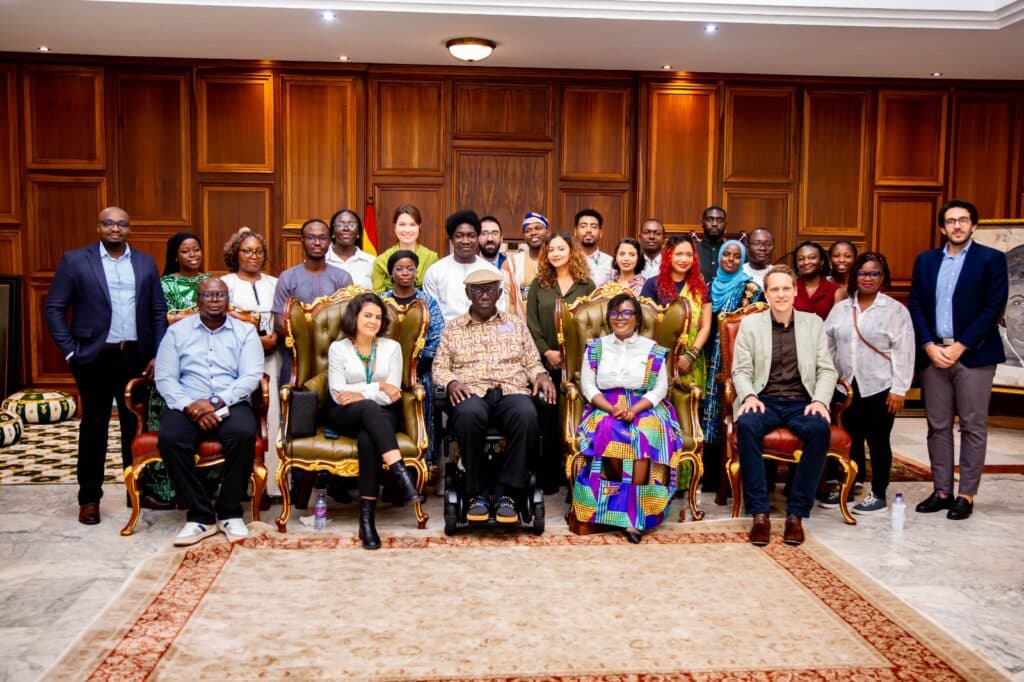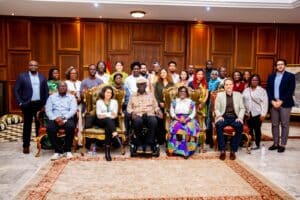Democracies do not sustain themselves. They require active and engaged citizens. Civic habits such as voting, showing interest in the affairs of the state, discussing politics, etc. help grow and sustain democracies. A vibrant civic culture enables citizens to stay informed as well as find ways to communicate with elected and non-elected public officers. It also enables public office holders to be responsive to the needs of citizens. In essence, the advantages of having citizens who are active and engaged in public spaces outweigh the disadvantages.
Democracies are intentional in creating incentives for citizens to be active and engaged. It is the reason why they guarantee certain essential political rights and freedoms to citizens – a) free speech; b) freedom of assembly; and c) freedom of association. It is also the reason why entities such as the media are guaranteed some basic rights and freedoms. When democracies guarantee these rights, they are guided by two things – a) that there is potential for abuse of these freedoms; and b) the need to institute remedies for addressing any “improper” exercise of these rights.
Active Citizenship
To exercise political rights and freedoms, citizens draw on several tools – a) formation of civic associations; b) letters to elected and non-elected public officials; c) protest marches and demonstrations; d) advocacy activities; among others. These tools cost both financial and non-financial resources to marshal in support of all active citizenship activities.
When Madam Sophia Akuffo, former Chief Justice joined pensioners picketing at the Ministry of Finance, I wrote a piece reflecting on the cost of active citizenship. The cost I had in mind was not the resources needed to deploy the tools of active citizenship. Rather, they were the costs that act either as barriers or disincentives to any citizen who wants to deploy the tools of active citizenship.
For a long time, I thought of these costs through the lens of the State with a focus on its actions and inactions that appear to a) place barriers in the path of active citizens; and b) create disincentives for future deployment of the tools of active citizenship by citizens.
But there is another important, often missed, dimension to this idea of the cost of active citizenship. It is those imposed by fellow citizens which I find very intriguing. It begs the question why a fellow citizen will impose a cost on another in a way that seems to frown upon active citizenship?
Why Do Fellow Citizens Erect Barriers and Impose Costs?
When I think of all the issues and concerns raised by active citizens, the benefits of a positive response by the State accrues to all. Positive State response does not discriminate between the active and non-active citizen. It does not even discriminate between the active citizen who advocated for it and the active citizen who did not. Why then does it appear that some of the cost impositions will come from a fellow citizen? Is there a concern about the political consequences of active citizenship, particularly if the consequences are not perceived as politically neutral – meaning they hurt or help both sides of the political aisle equally? Or are there other overriding concerns that motivates the imposition of costs by fellow citizens?
The barriers we erect, and the disincentives offered in the face of active citizenship go a long way to undermine a critical need in our democratic spaces. Imagine a democratic space without a vibrant civic culture where active citizens regularly draw attention to pressing issues by deploying civic tools and exercising rights guaranteed by the Constitution.
In weighing these costs though, in my opinion, when the duties of the State “clash” with the deployment of the tools of active citizenship, it is often my hope that fellow citizens will err more on the side of active citizenship and not The State.
It does not mean fellow citizens must lend credence to conduct what is unlawful. Far from that. It simply means that the principles and tools of active citizenship are timeless and when activated, draws certain responses from the State. What citizens must strive to communicate to the State is that certain responses to active citizenship act as barriers and disincentives to something critically important to democratic practice.
The other issue which must guide us when imposing costs is something the President often, and I wholeheartedly agree with, touts – “due process.” On the occasions I have heard him speak about this, the point he tries to communicate is that the appreciation of “due process” does not come when one is on the “right” side of the law. Rather, it comes when one is allegedly on the “wrong” side of the law. That appreciation, I believe, is how we should evaluate all State Actions in response to active citizenship.
 John Osae-Kwapong (Ph.D) is a Democracy and Development (D&D) Fellow at the Ghana Center for Democratic Development (CDD-Ghana).
John Osae-Kwapong (Ph.D) is a Democracy and Development (D&D) Fellow at the Ghana Center for Democratic Development (CDD-Ghana).
















